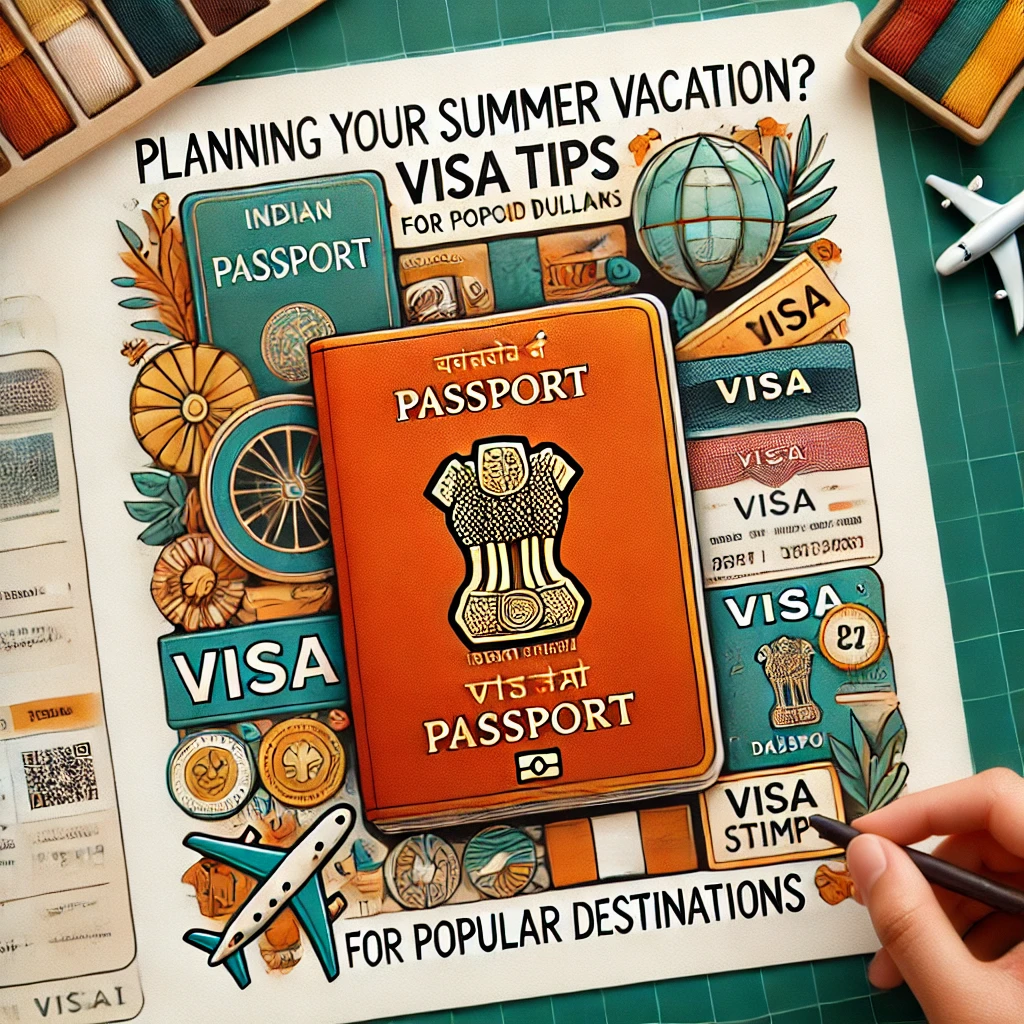
Summer is the ideal season to travel to new places, experience other cultures, and make memories that will last a lifetime. However, it’s crucial to make sure you have the appropriate visa for your intended trip before packing your bags. Here are some useful pointers and advice to help you organise your summer vacation in a stress-free and easy manner.
1. Start Your Visa Application Early
Depending on the nation and season, visa processing periods can vary greatly. Longer processing times may result from the summertime surge in travellers. To prevent last-minute problems, start the visa application procedure at least two to three months prior to your intended departure.
Pro Tip: If you have an urgent trip planned, see if your destination offers an expedited visa service.
Visa requirements vary depending on the travel. For instance:
Tourist Visa: Perfect for leisure and sightseeing travel.
A business visa : is required to attend meetings or conferences.
E-Visa: In some countries, available for brief visits.
Make sure the type of visa you apply for corresponds with the reason for your trip. Giving false information may result in the application being rejected.
3. Research Visa-Free or Visa-on-Arrival Countries
Consider travel destinations that provide visa-free or visa-on-arrival access for your nationality if you’re pressed for time or would rather avoid the headache of a drawn-out application process. Many tourists choose to visit the following popular summer destinations without a visa:
1] Thailand: Ideal for those who enjoy the beach.
2] Maldives: A tranquil tropical paradise.
3] Greece: Perfect for those who love culture and history.
Make sure you have the necessary paperwork (passport, pictures, proof of finances, etc.) on hand for countries that require visas upon arrival.
4. Check the Validity of Your Passport
The majority of nations require that your passport remain valid for at least six months after the dates of your trip. To prevent any problems at immigration, make sure your passport satisfies this criteria.
Pro Tip: To save time and prevent issues, renew your passport before applying for a visa if it is about to expire.
5. Prepare the Required Documentation
Although each nation has different requirements for visas, the majority of applicants will request the following:
1] a passport with blank pages that is still valid.
2] current passport-sized photos.
3] completed applications for visas.
4] Evidence of travel plans (hotel reservations, airline tickets).
5] Evidence of sound financial standing, such as paystubs or bank statements.
6] travel insurance that covers you for the whole time you are there.
Make sure all of your paperwork are correct and current, and double-check the particular criteria for your location.
6. Understand Visa Fees and Policies
Visa costs vary per nation and can rely on the kind of visa you’re requesting. Be mindful of:
1] Fees that are not refundable: Even in the event that your visa is denied.
2] Determine whether you will need to enter and exit the nation during your trip by comparing multiple entry and single entrance visas.
Pro Tip: To save time, a lot of embassies accept online payments.
7. Be Aware of Special Visa Policies
Certain nations have distinct policies:
1] 27 European nations are covered by the Schengen Visa. Use the consulate of the nation where you intend to spend the most time to submit your application.
2] Travellers from nations that are part of the Visa Waiver Program must have an ESTA (USA).
3] For qualified passengers, an electronic travel authorisation is known as an eTA (Canada).
8. Keep Copies of Your Documents
Always have digital and hard copies of your most crucial documents on hand, such as:
passport.
Visa.
insurance for travel.
If your original documents are misplaced or stolen, this could save your life.
9. Check COVID-19 Guidelines
Some nations still retain particular COVID-19-related admission criteria, even though restrictions have loosened in many areas. These include:
1] evidence of immunisation.
2] PCR test results that are negative.
3] forms for health declarations.
To prevent surprises, stay informed about the most recent travel advisories for your visit.
10. Consult a Visa Expert
Consider contacting a visa consulting firm if you are overwhelmed by the visa application process. These professionals can help you reduce the chance of rejection, make sure all the paperwork is in order, and walk you through the process.
Final Thoughts
Summer trip planning should be fun, not stressful. You can concentrate on having fun rather than worrying about paperwork if you prepare ahead of time and follow these visa suggestions. Good luck on your journey!
Do you have enquiries concerning applying for a visa? Let us know in the comments, and we’ll assist you!
